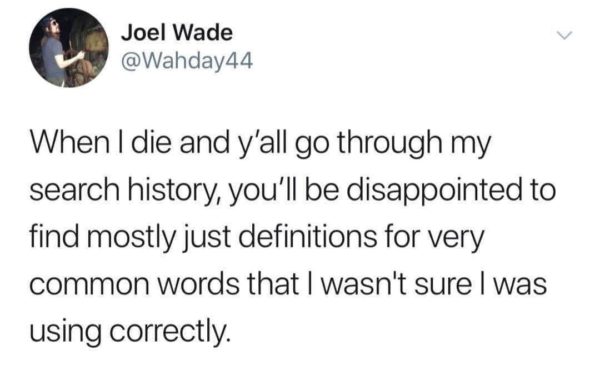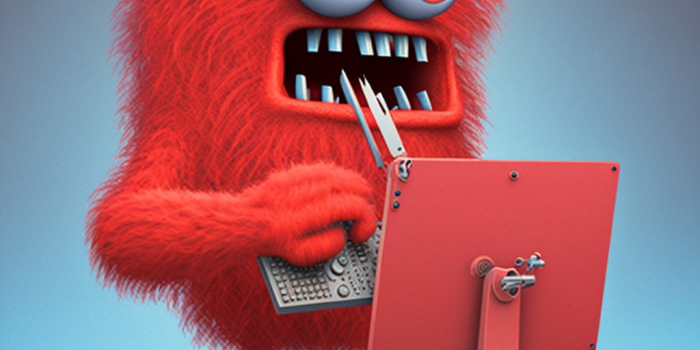Good Monday Morning
It’s November 21. Every week, I am deeply grateful to all of you who read Spotlight. Writing this has been a part of my weekly routine since I was working in corporate and for almost (soon!) 15 years at Silver Beacon Marketing. Some of you have been reading for over ten years. I thank you akll, and I hope you encourage your friends and colleagues to subscribe. As always, Spotlight is free–sign up in 30 seconds.
Today’s Spotlight is 804 words — about 4 ½ minutes to read.
Spotlight On … Passkeys
A partnership between Google, Microsoft, and Apple means that you’ll be able to create passkeys on your phone and computer. They’re easier to use and more secure than passwords. Yahoo! Japan reduced password inquiries by 25% and improved sign-in time 2.6x when it tested using passkeys.
How Passkeys Work
Your device creates a complex two-part code behind the scenes. The first part stays on your device, and the second part stays on the website. A biometric–like your fingerprint or facial recognition–gives you access. It’s even okay to use a PIN because both parts must match.
In September, Apple’s iOS 16 launched with passkey functionality. By the end of the year, Google says Android and Chrome will support passkeys.
Why Passkeys Are More Secure
Half of the code is on your device and is protected by your fingerprints, face, or PIN. The public half of the code won’t help if passwords are hacked or leaked, so nobody can get into your account. Your device keeps the private half of the code safe.
Someone would have to circumvent your biometrics or guess your code to use your device. You can still access your account from another device, report it lost, and stop any authentication.
Next Steps
This Gizmodo primer shows you how to switch from passwords to passkeys when you’re ready.
3 More Stories to Know
1) Google reportedly paid game giant Activision $360 million over three years to avoid Activision launching its own app store. The arrangement was discussed in discovery documents introduced in Epic’s ongoing antitrust suit against Google although Activision and Google both deny this characterization.
2) FBI director Christopher Wray testified to a House committee last week that the agency has national security concerns about TikTok operating in the U.S. TikTok, owned by Chinese company ByteDance, admitted four months ago that non-U.S. employees can access U.S. user data.
3) The U.S. government seized a network of more than 200 websites and ordered the arrest of two Russians running the Z-Library book piracy network. The site offered access to more than 11 million books and 84 million articles. Many supporters claimed in interviews that the site made prohibitively-priced college textbooks and research articles available, but the site also had robust popular book selections.
Trends & Spends


Did That Really Happen? — Intel’s FakeCatcher Finds Deep Fakes Via Blood Circulation
Intel engineers have created FakeCatcher, software that catches 96% of deep fake videos by mapping blood flow at the pixel level. Those changes are imperceptible to the human eye, but right up a computer’s alley.
Following Up — Mayo Atrial Fibrillation Software Screening
We’ve told you that wearables and other device makers are making progress on detecting irregular heartbeats. Now researchers from the Mayo Clinic say that software they helped develop can identify high-risk patients who present an otherwise normal rhythm on an ECG diagnostic test.
Protip — Where to Find Your Wi-Fi Passwords
In the event you’re at someone’s house or they at yours and embark on a search for the Wi-Fi password, we hereby pass to you the ancient secrets of where to find the Wi-Fi password stored on a Mac or PC.
Screening Room — Frito-Lays + World Cup = Manning, Beckham, Hamm & More
Science Fiction World — Snow Roombas!
You need not measure snow in dozens of inches to appreciate an autonomous snow blower that purports to work even with a foot of snow on the ground. Yarbo created a Kickstarter that raised more than $3 million for its robotic tools that include the snow blower, leaf blower, and lawn mower.
Coffee Break — Who Said It: Elon Musk or Mr. Burns?
Yes, Musk has become a tired yet horrific story. As the billionaire drags Twitter into chaos, test yourself to see if he or The Simpsons’ Mr. Burns made these statements.
Sign of the Times

